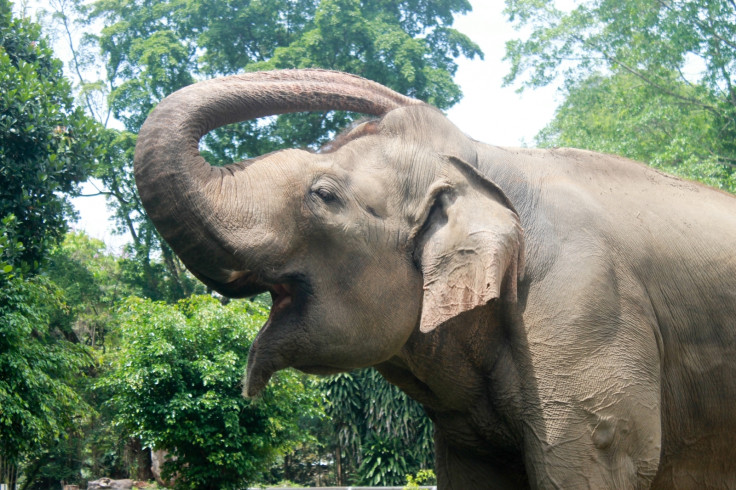Indonesia: Pregnant Sumatran elephant found dead from suspected poisoning
At least seven Sumatran elephants have died in Riau province in the last three years.
A pregnant Sumatran elephant was found dead of suspected poisoning in Indonesia's Riau province. The carcass of the critically endangered elephant was found next to a palm plantation in the province.
The pregnant elephant was 25 years old and was about to give birth soon. She was found bleeding from the mouth and anus last week by the authorities.
A pineapple was also found in her stomach, increasing the suspicions that it may have been poisoned since the fruit is not locally grown in the region, per a report in The Independent.
"From the sign of changes in the shape of its internal organs, such as the lung, it looks like it is burning, black and oozing from the blood," said Zulhusni Syukri of Rimba Satwa Foundation, one of the groups that found the elephant during a patrol.
SUMATRAN ELEPHANT DIES OF SUSPECTED POISONING
— The Philippine Star (@PhilippineStar) May 29, 2022
A pregnant Sumatran elephant was found dead of suspected poisoning near a palm plantation in Indonesia’s Riau province on the island of Sumatra, officials said Friday. (Photo/Indonesia's Nature Conservation Agency) | via @AP pic.twitter.com/XdBgeRBL3Y
Several elephant poisoning incidents have been reported over the last few years from the island of Sumatra. The species is on the brink of extinction which could prove fatal for the ecosystem.
Even though the animal is protected under Indonesian law, the poachers have not given up on their efforts to try and catch these elephants for their tusks. At least seven Sumatran elephants have died in Riau province in the last three years, and the island is now left with fewer than 700 elephants.
In 2019, a Sumatran elephant was found decapitated with its tusks ripped off. Last year, a baby Sumatran elephant died after losing half its trunk in a trap set by poachers in the region.
According to the data provided by the Indonesian Forestry and Environment Ministry, the population of Sumatran elephants on the island has gone down by 50 percent in the last seven years. The decline in the population has also been attributed to a loss of more than 69% of the animal's potential habitat in the last 25 years and human-animal conflict.
Rapid development and deforestation in Sumatra have further increased the incidents of human-animal conflict in the region. The elephants often raid crops, trample homes and sometimes even kill people. Humans also retaliate by sometimes poisoning or shooting these elephants, according to World Wildlife Fund.























